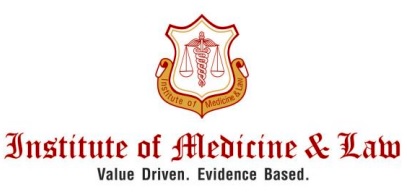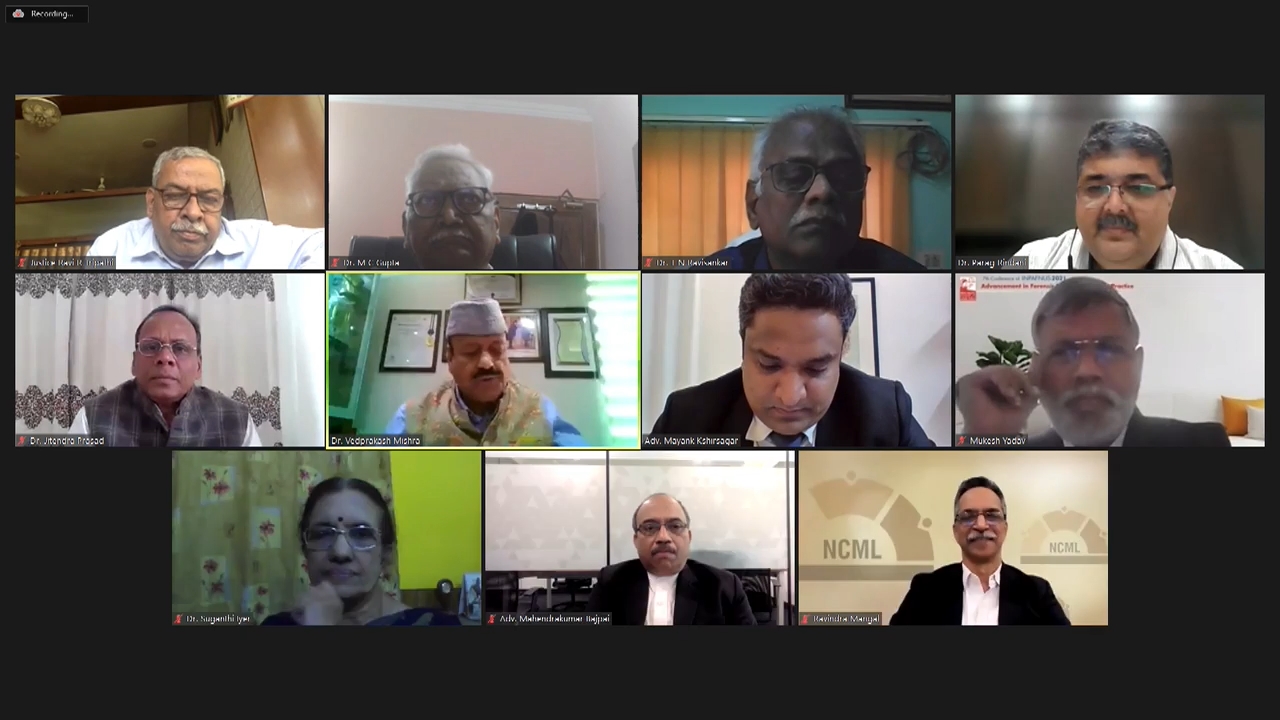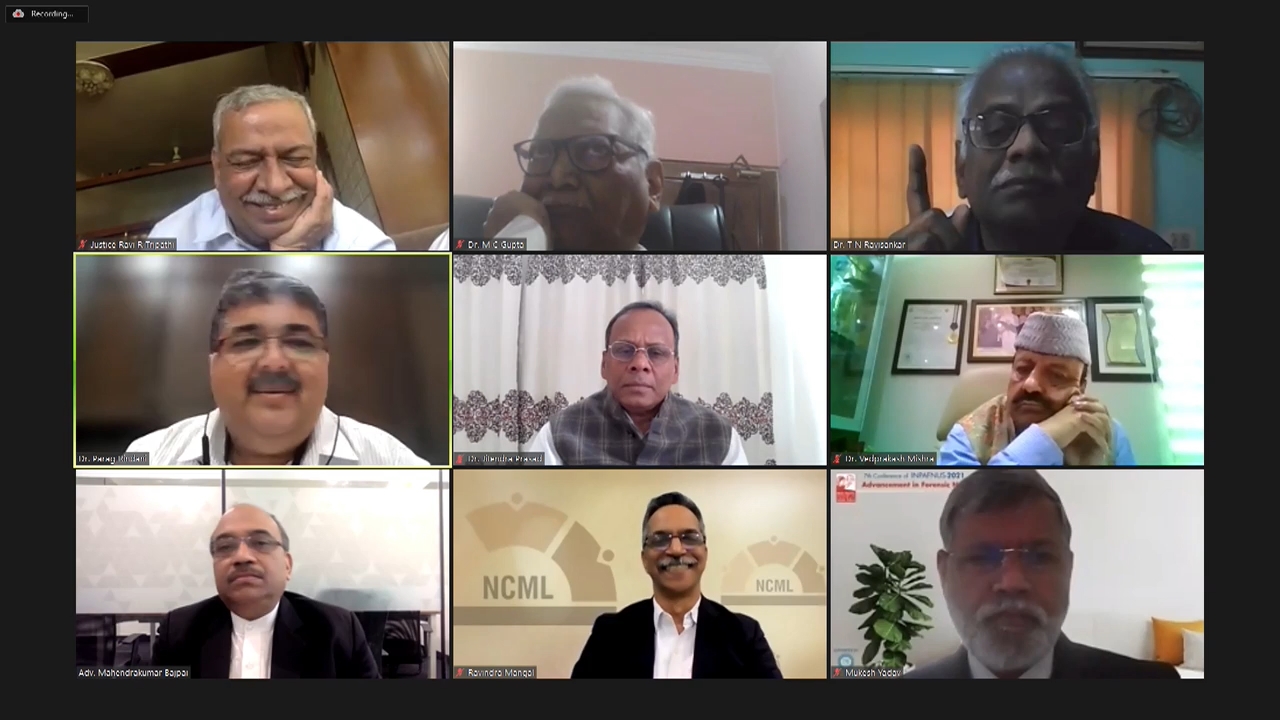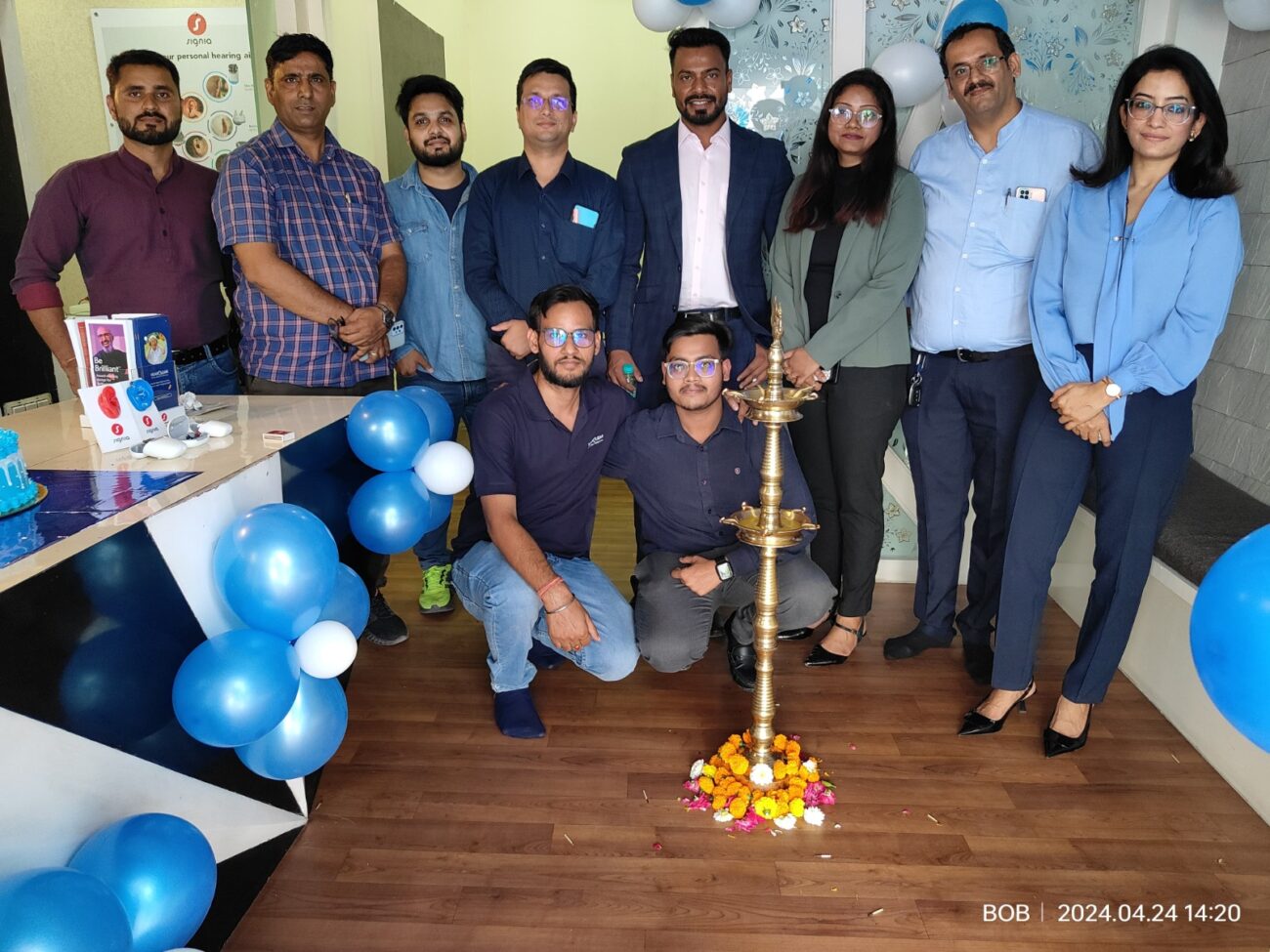Add special provisions in IPC, CrPC and Evidence Act to deal with the prosecution of doctors recommends ‘National Convention on Medicine & Law 2022’
The 7th National Convention on Medicine & Law 2022 was held virtually on 6th November 2022. Speakers from diverse backgrounds including former Supreme Court and High Court judges, members of the Law Commission of India, doctors, lawyers,


The 7th National Convention on Medicine & Law 2022 was held virtually on 6th November 2022. Speakers from diverse backgrounds including former Supreme Court and High Court judges, members of the Law Commission of India, doctors, lawyers, regulators, and administrators deliberated on the various aspects of the prosecution of doctors for medical negligence.
The general consensus that emerged was that the Parliament must introduce special provisions not only in the Indian Penal Code (IPC) but also in the Criminal Procedure Code (CrPC) and the Indian Evidence Act. Setting up of Medical Tribunals to deal with cases of medical negligence was another alternative endorsed by many speakers. It was also agreed that this problem is global in nature, the consequences are disastrous for everyone, especially patients, cosmetic changes in the existing law will not suffice, there should be no compromise on patients’ safety and rights, and the reasons given by the Hon’ble Supreme Court in the Jacob Mathew case to provide special protection to doctors in cases of criminal medical negligence are equally good today.
Dr. Vedprakash Mishra, Pro-Chancellor, Datta Meghe Institute of Medical Sciences, Nagpur chaired the Convention. Mr. Mayank Kshirsagar, Advocate on Record, Supreme Court was the Convenor, and Dr. Parag Rindani, CEO, Wockhardt Group of Hospitals, Maharashtra was the Moderator of the Convention.
Justice Asok Kumar Ganguly, retired Supreme Court judge, stated that unless the suggestions made by the Supreme Court in the Jacob Mathew case are “transformed into the Letters of Law” by the Parliament it will be difficult to guide the police officers in such cases. “It is high time for the Parliament to come forward and review these old, colonial legislation of IPC and make it in tune with the present need of the time” stated Justice Ganguly.
Justice Ravi Tripathi, Chairman of the Gujarat State Human Rights Commission and former member of the Law Commission of India stated that the general opinion is that doctors should not be totally immune from prosecution but must certainly be given ‘special treatment.’ He pointed out that in instances such as bride burning and rape, the courts framed the guidelines and the Parliament made laws thereafter and this model must be followed in cases of doctors also. He further recommended that only officers of a particular rank should have the authority to initiate criminal prosecution against doctors. He expressed surprise at why the MCI had not moved the Supreme Court seeking further orders in these 17 years after the Jacob Mathew case. He also assured the doctors that the judiciary respects the doctors as a class and advised them to refrain from behaving in an oversensitive manner.
Justice Ajay Kumar Mittal, former Chief Justice of Madhya Pradesh High Court stated that a balance must be evolved between the rights of the patients and the protection of doctors from criminal prosecution. He suggested that reference should be made to the Medical Council of India or the Medical Board of States to give an opinion in a timebound manner before initiating criminal proceedings against doctors, a difference must be drawn between a professionally qualified doctor and a quack, and the patient (complainant), as well as the police officers, must also be made accountable if they choose to prosecute doctors. He further opined that a new law was not required but special provisions must be introduced in the IPC and the Indian Evidence Act wherein a “rebuttable presumption” should be raised in favour of a qualified doctor.

Dr. Mukesh Yadav, President, Indian Association of Forensic Medicine, shared some valuable analytics based on the report of the National Crime Research Bureau (2017 to 2021). He pointed out that more than 90% of the doctors prosecuted for negligence have been arrested despite the protections provided in the Jacob Mathew case; about 80% of the doctors who were prosecuted are from the age group of 31 to 60 years – the most productive age for doctors; 90.79% of the doctors arrested are males whereas 9.21% are females; the conviction rate a mere 14.63%; and only 54.6% of the doctors prosecuted were charge-sheeted whereas the others were either discharged or the case against them simply abated. “What is the fun in filing an FIR and harassing doctors if you cannot even reach the trial stage” questioned Dr. Yadav.
Dr. Vedprakash Mishra who chaired the Convention as well as Dr. Shivkumar Utture, President – Maharashtra Medical Council & Member – National Medical Commission pointed out that the Medical Council of India and the National Medical Commission have forwarded draft guidelines to the Union government on the criminal prosecution of doctors as suggested in the Jacob Mathew case. They have recommended a 2-tier system wherein every case of prosecution of doctors must be sent to the District Medical Board which will give its opinion in 2 weeks. Any party aggrieved by this opinion can appeal to the State Medical Board which will also give its opinion in 2 weeks thereafter. The Board/s will have 2 specialists from the same speciality as the doctor accused of negligence. The government is yet to respond to the suggestions.
The speakers specifically deliberated on the various dimensions of the problems arising out of the prosecution of doctors for negligence, the underlying reasons, the consequences, and the probable solutions and recommendations. The prominent ones are as follows:
Problem Statement
This phenomenon is global in nature and the problem is complex. Today, law is the greatest fear in the minds of medical professionals. Even nurses are now being dragged to court. The dead body of a patient is often used as a bait to terrorise the healthcare provider.
The image of doctors as profit-making, devious elements, corrupt, and often willfully negligent has been created by films, media, and even doctors themselves.
There seems to be an unwritten policy to accept every FIR against doctors. False FIRs are deliberately and knowingly filed by the police and the administration is not interested in acting against their erring officers even if their mischief is patent.
The expert committees appointed to investigate cases of medical negligence do not have proper guidelines on how to distinguish between normal and gross and / or criminal negligence, routine negligence and / or gross negligence, and institutional negligence and / or individual negligence.
The regulatory bodies, namely, the National Medical Commission and the State Medical Councils which decide the complaints against doctors comprise only of doctors, are a closed forum, and opaque to a large extent. Conflict of interest is patent in their proceedings.
All the statutory laws for protecting doctors have proven to be largely ineffective. To illustrate, there are 17 laws on violence against doctors legislated by different States, yet the violence continues unabated.
Underlying Reasons – Patent / Latent
The level of maturity to comprehend the factual situation during medical treatment is lacking in our society. Emotions run high, especially when there is a death and relatives tend to blame the doctors rather than look for other factors. The general impression is that doctors are powerful people. A lack of trust and faith in doctors is perceptible. There is anger. This is also reflected in the behaviour of the law-enforcing agencies.
This problem is further compounded by the interference and pressure from politicians and other nefarious elements who seek to criminalize death.
Patients fail to realize that healthcare cannot be compared with a computer machine where the response will always be standard, yet the same is expected. Doctors and medicines have their own limitations, and our systems are grossly inadequate.
Lack of universal healthcare, the prohibitive cost of healthcare, super-commercialization of the medical care sector, and ‘perverse incentives’ offered by a privately dominated system are some of the macro reasons that lead to discontent amongst the public.
The relative inactivity and lack of credibility of the professional and regulatory organizations further compound the issue. Normal people are aggrieved as their complaints are neither attended to on time nor is the working transparent.
There is an increased mistrust between the State and its citizens. Arrest as a means to respond to the perceived negligence of a healthcare provider reflects a cavalier attitude of the law-enforcement authorities.
Consequences
If this atmosphere of fear and stress continues doctors will stop practising medicine, the ones who will practice will stop taking risks and / or stop accepting critical cases, and academically bright students will refrain from opting for medicine. The initial symptoms are visible – several seats in medical colleges are going vacant. Let us also not forget that the doctor-patient ratio in India is already abysmally low.
Furthermore, the threat of prosecution and the uncontrolled and irrational fear of the unknown generated in the minds of doctors destroys the peace, calm, and tranquility of their mind. This is not an ideal situation when one is handling a human life.
Moreover, false and frivolous cases take away a doctor’s time, money, and energy and it is the patient who suffers ultimately.
Medical research and advancement get affected. It is a disservice to the progress of medicine.
The loss to society will simply be unbearable if the current situation is not addressed appropriately and immediately.
Solutions / Recommendations
There was a general consensus that the Parliament must make laws for protecting doctors from false and frivolous prosecution as directed by the Supreme Court. Furthermore, there is no need to enact a new law but appropriate amendments in the form of newer provisions should be added to the IPC, CrPC and the Indian Evidence Act. The guidelines given by the Supreme Court in both the Jacob Mathew as well as the Lalita Kumari cases must be taken into account in drafting the new provisions. Appropriate procedural safeguards are needed, and mere cosmetic changes will not work.
Any compromise with the patients’ rights or patients’ safety cannot be tolerated And a balance between the patients’ rights and the doctors’ duties must be achieved.
The other notable suggestions were as follows:
The role of the National Medical Commission and the State Medical Councils should be increased in criminal cases against doctors. They must not only be statutorily empowered to investigate cases of negligence and in appropriate cases suggest criminal action but all cases of criminal medical negligence must be referred to them and the same should be disposed of in a timebound manner. It was pointed out that as compared to the Medical Council of India (MCI) the National Medical Commission (NMC) has more powers. One suggestion was that till the time, Parliament makes the law on this subject taking permission from the National Medical Commission (NMC) or the State Medical Councils should be mandatory to protect the doctors in the intervening period. Another suggestion was that National Medical Commission (NMC) must come out with a detailed guidance document pointing out the difference between ‘gross negligence’ which attracts criminal liability and ‘negligence’ which does not.
As far as the police are concerned, they must be made more accountable and punished for lodging any false or frivolous FIR against doctors. Every policeman should be trained appropriately on this law and this training must be an ongoing process. One suggestion was that only high-ranking police officers of a particular rank should have the authority to initiate criminal prosecution against doctors. Another suggestion was that some sort of certification or permission from an IPS officer should be taken by the Investigating Officer (IO) before registering an FIR against a doctor. It was pointed out that a similar suggestion was given recently by the Union government before the Supreme court in the sedition case.
One suggestion was that a panel comprising of doctors and senior IPS officers must vet every case of criminal medical negligence and their opinion and / or permission must be taken before lodging an FIR.
Certain purely legal suggestions were made. A few of them are as follows:
Comprehensive and sharper definitions of error, negligence, criminal negligence, and gross medical negligence must be statutorily provided.
The Indian Evidence Act must appropriately and elaborately define an ‘expert’ who can give an opinion in a case of medical negligence and a “rebuttable presumption” should be raised in favour of a qualified doctor in all cases of medical negligence.
Law must draw a difference between a professionally qualified doctor and a quack as well as structural and personal negligence.
The confusion emanating from the judgements given by the Supreme Court in Jacob Mathew and Lalita Kumari must be clarified. One aspect that needs specific clarification is – whether the police are bound to register FIR within 14 days after conducting a preliminary investigation in all cases of medical negligence.
There is also a need to have a system of investigation into perceived negligence by the regulatory body, the National Medical Commission (NMC), which should be transparent and without any conflict of interest. Committees looking into the complaint of the patients must have representations from diverse fields and not only doctors. The proceedings must also be transparent. It was pointed out that the Law Commission of India has given a similar suggestion to include non-Advocates in disciplinary proceedings against advocates under The Advocates Act, 1961.
Diligent and timely enforcement of the legal protection given to doctors was also stressed. The public should be educated on this aspect and must be assured that justice will be done if anyone is wronged by the doctors. Doctors must be trained appropriately in communication skills such as how to break bad news.
There were a few unusual, thought-provoking, and futuristic suggestions. These are:
A ‘Medical Tribunal’ to entertain and try all cases of medical negligence was endorsed by many speakers. It would be of great benefit to both doctors and patients and would save their time, energy, and money which is wasted in pursuing lengthy legal proceedings.
Sections 304A, 336, 337 and 338 of the IPC which deal with cases of negligence should be made inapplicable to those jobs and professions where the death or harm of another person is a “likely or spontaneous consequence” of normal action or inaction. These jobs / professions must be specified and statutorily protected.
All the hospitals and healthcare facilities should be statutorily declared as protected areas.
The current policy that is centred around minimizing negligence should shift towards compensating the one who has been wronged. Time, money and / or the resulting disability of the patient should be compensated by the State.






